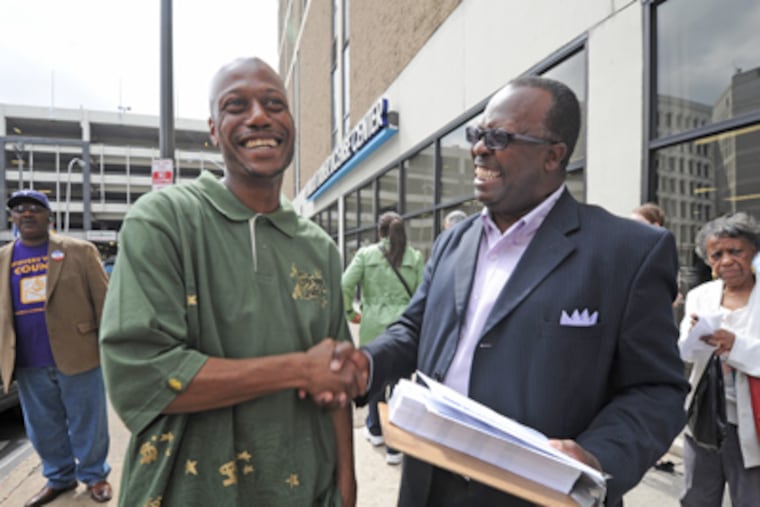Voter ID laws will help restore trust in our elections
If we don't trust our elections, the entire republic is at risk. A majority of states have voter ID laws and have seen no drop off in voter participation compared with those that do not.

Trust is declining across American institutions, but nowhere is that decline more concerning than in the process of voting.
A Rasmussen Reports poll earlier this year found that more than half of all voters believe cheating affected the 2020 election. That lines up with a Muhlenberg College poll of Pennsylvanians last year that asked about the same election and showed that about a third of all voters were “not at all confident” that the result matched the true vote.
But voters sharply differ on the nature of the problem. The Muhlenberg survey found more than half of Republicans thought voter fraud was a major issue, while nearly half of Democrats believed voter suppression was a serious problem.
This shows that election integrity has become tinged with partisanship and tribalism. Raising even legitimate complaints is difficult because people will assume you are an extremist from the “other team” and ignore you.
If we don’t have confidence in our elections, our entire republic is at risk.
In this toxic atmosphere, the state legislature in Harrisburg has managed to make some meaningful reforms that attracted bipartisan support. Neither side got everything that they wanted, but the bills passed by the Republican-controlled legislature and signed by the Democratic governor may be the first step in restoring some of that dwindling trust in our electoral process.
My own view of Pennsylvania’s recent election results is pretty boring: I think Donald Trump won the state in 2016 and Joe Biden won it in 2020. In neither election was there plausible evidence of cheating — no Russian hacking in 2016, no ballot box-stuffing in 2020 — but the way mail-in balloting was conducted (with rules seemingly being changed on the fly) left many people with a justifiable sense of unease.
It’s not a perfect system: Just last month, former Rep. Ozzie Myers pleaded guilty to ballot-stuffing in Philadelphia. But even if fraud is rare, each time it happens it weakens our electoral system and reduces the trust we have in our government.
We have to regain that trust. One way to do it, I believe, is to require voter identification. The legislature passed a constitutional amendment to that effect at the end of the last session. To allay concerns that this policy might adversely affect low-income voters, the amendment requires that voters without valid IDs would be provided them by the state.
If it passes again in the next session, Pennsylvania voters will have the chance to vote it up or down at the next election. It will probably pass: A 2021 poll from Monmouth University found 80% of those surveyed (including 62% of Democrats) support the idea of voter ID. That’s not surprising: After having to show an ID to enter government buildings and airplanes for years and a vaccine card to get into a restaurant recently, Pennsylvanians are used to the idea.
“A 2021 poll from Monmouth University found 80% of those surveyed (including 62% of Democrats) support the idea of voter ID.”
Some of the 20% who oppose voter ID say there is very little evidence that fraud happens without it. That may be true — the lack of record-keeping makes it difficult to measure fraud. But the perception itself is important — people have to believe in the election process to trust the result. A voter ID law will help restore some trust in the process. A majority of states have such laws and have seen no drop off in voter participation compared with those that do not.
Other legislative changes passed with the budget package and were badly needed. The editorial board of the Wall Street Journal recently called Pennsylvania “the new Florida when it comes to voting rules and vote-counting.” If you are old enough to remember the 2000 election (and the “hanging chads”), you’ll know that’s not a compliment.
One big change in Pennsylvania is a ban on the private financing of public elections. That should seem like a no-brainer — why would a state ever let private actors determine where election funds go? Yet that is what the Wolf administration did in accepting grants from a nonprofit funded by Facebook’s Mark Zuckerberg.
These “Zuckerbucks” were supposedly aimed at helping people vote, except that the money was funneled disproportionately to Democratic counties by inviting them to apply for grants before Republican counties even knew about them. This practice is now illegal.
The legislature also granted $45 million to counties to help run their elections. Counties accepting the money can do things like remove deceased voters from the rolls, ensure that all ballots are held securely, count incoming ballots without interruption on Election Day, and make the counting process for mail-in votes more transparent. Cleaning up voter rolls does not mean following Doug Mastriano’s possibly unconstitutional idea of forcing every voter in the state to reregister; it simply tells counties to do what they were already supposed to be doing: making sure only eligible voters are on the lists.
A republic only works if people believe in it. Being able to trust in secure and accessible elections is the best way to get there.
Kyle Sammin is editor-at-large at Broad + Liberty.